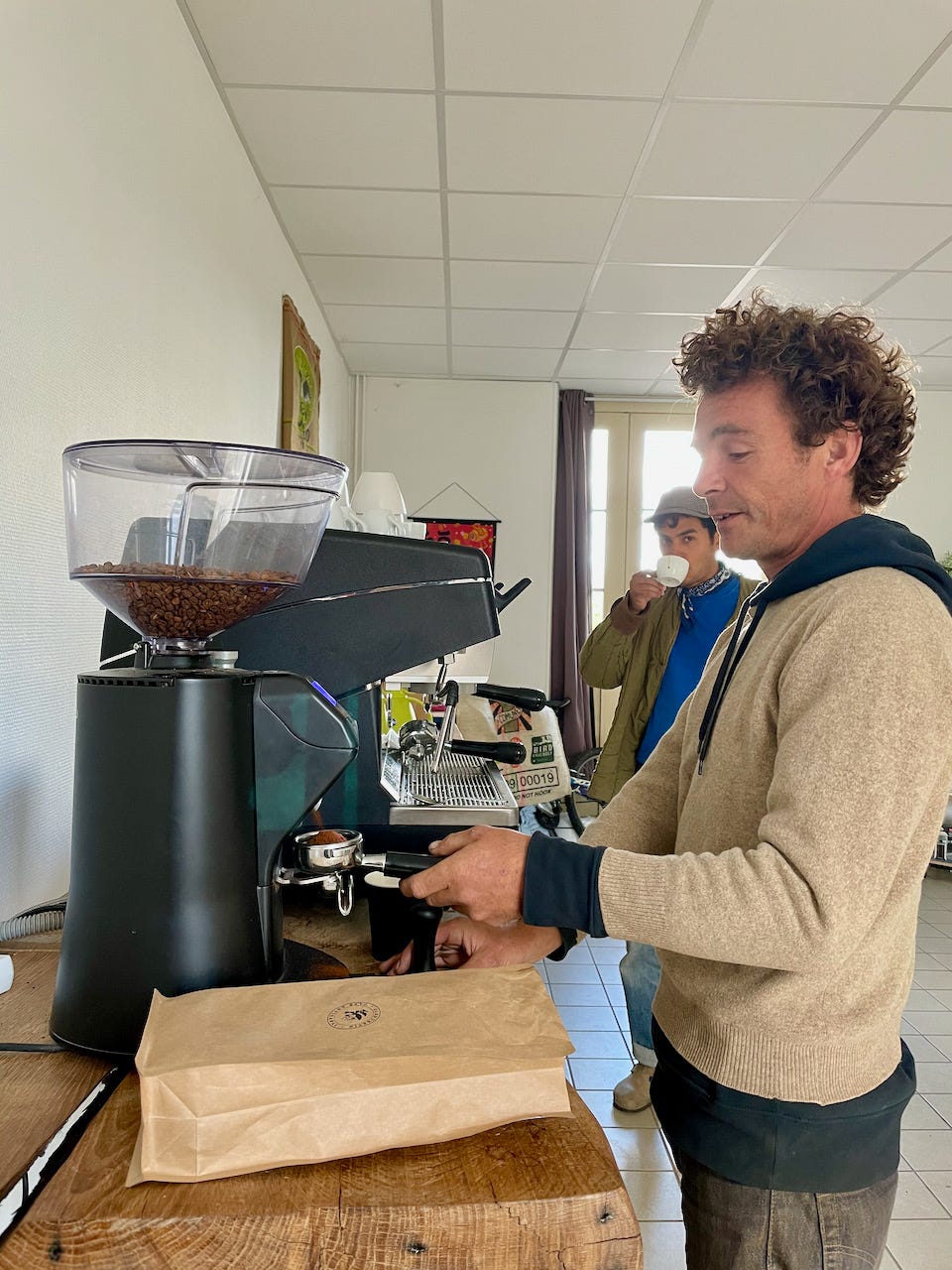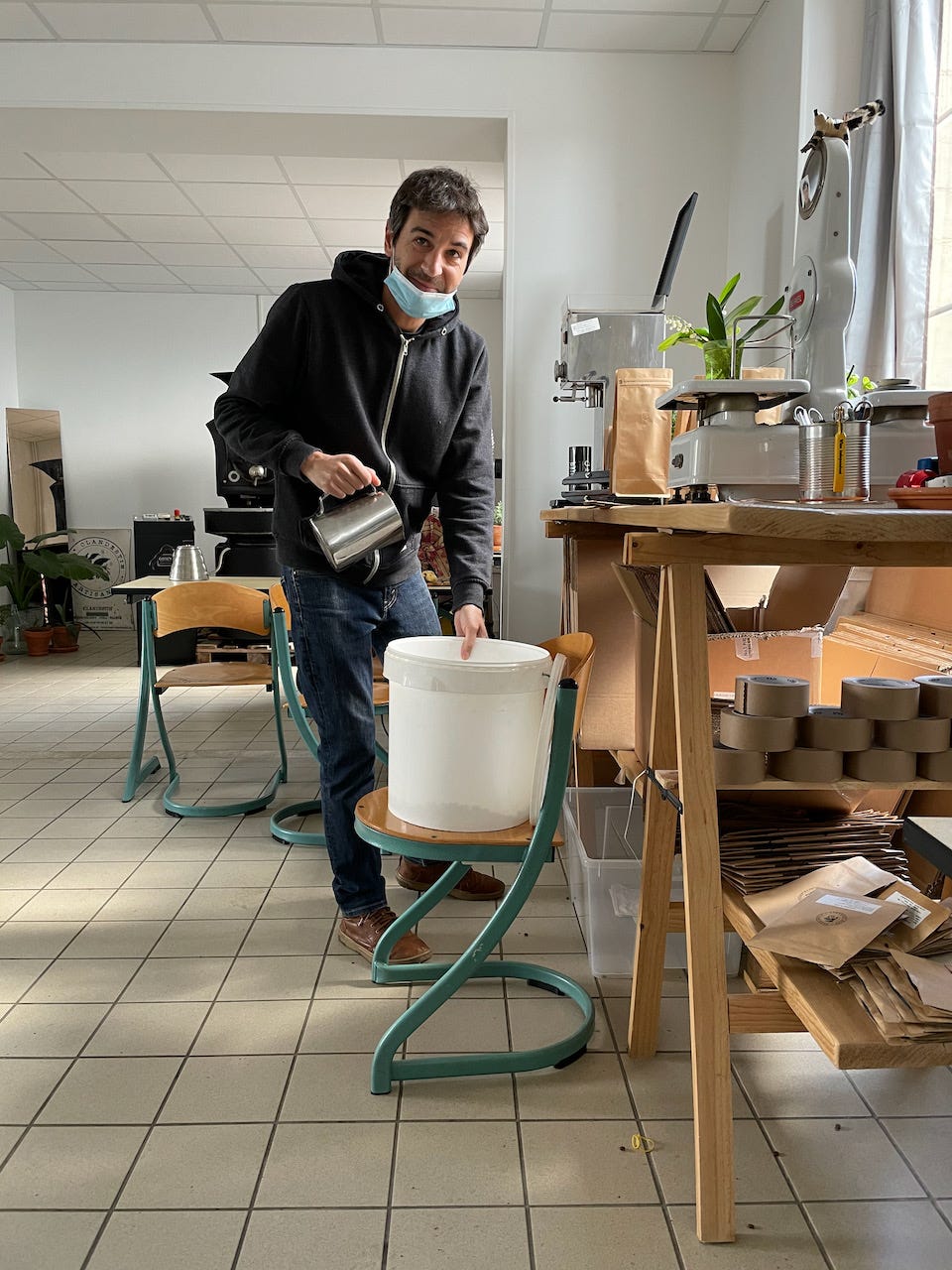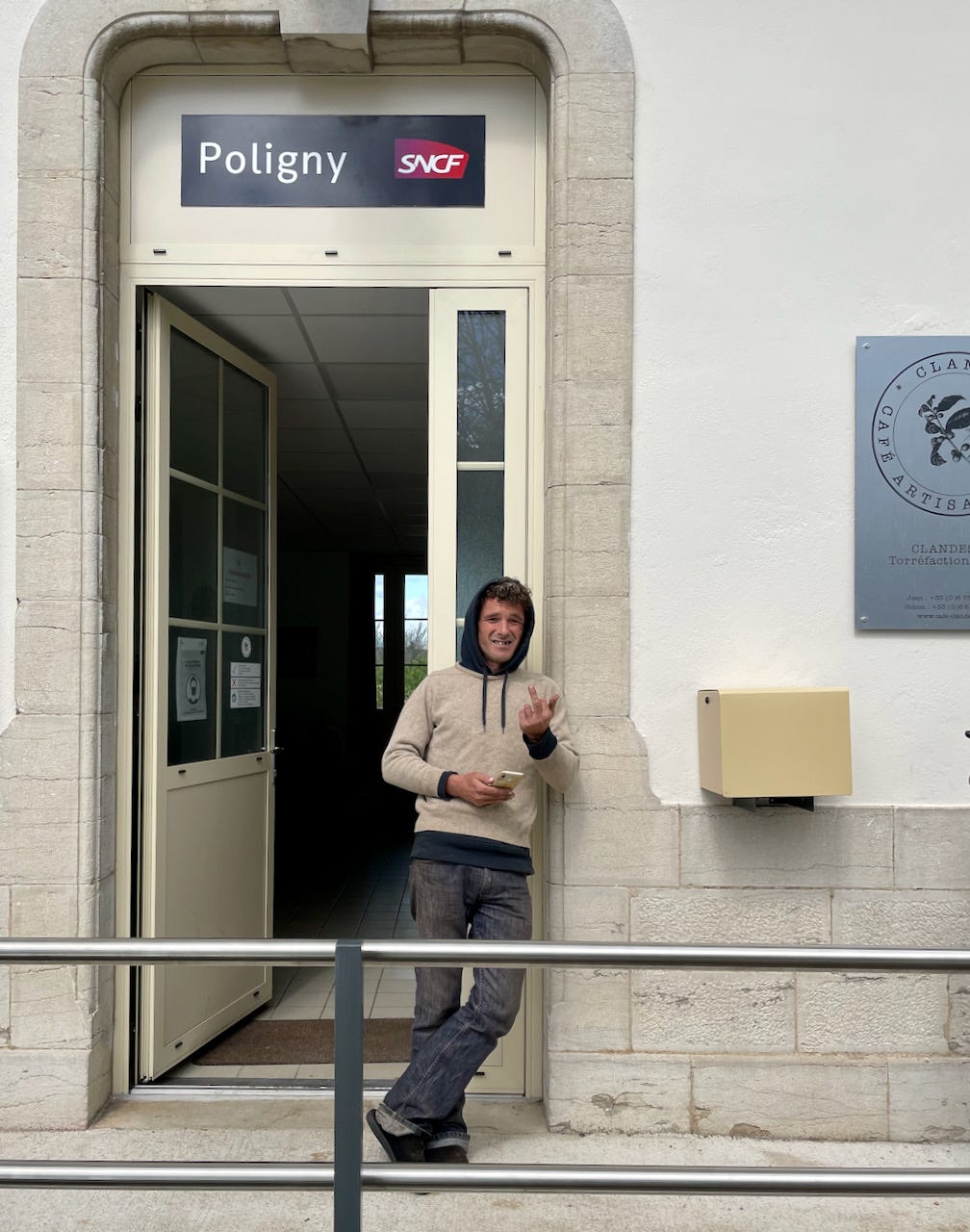Dining on the Wine Trail: Café Clandestin, Poligny
An interview with vine-savvy torrefacteur Simon Boone, who along with Jean Deschamps founded Café Clandestin, the Jura's favorite natural-wine-inspired artisanal coffee company.

After a two-year wait, the Jura veterans behind Café Clandestin - Simon Boone and Jean Deschamps - moved into a spiffing new premises in the refurbished train station in Poligny in October 2020. Now open with regular hours as a tasting room, Café Clandestin offers world-class coffee in a region that, like most of France, was previously utterly bereft thereof. It’s an ideal place to load up on gifts for vignerons and friends in less fortunate regions - ones not home to their own natural-wine-inspired coffee company.
Quick Facts
Café Clandestin’s Simon Boone is originally from the Netherlands. Jean Deschamps is from the Doubs. They met during harvest in 2014 at Domaine Octavin.
Boone was already active in roasting circles. Deschamps had run an IT company in the Jura for a decade, designing websites for many gastronomic restaurants. The pair founded their company in 2017 in a very bare-bones way, debuting their work at the Les Anonymes salon in Angers.
Until 2020 they roasted in a garage in Poligny. As of October 2020, they moved into a larger refurbished space in the town’s former train station.
To support himself while establishing the company, Boone has worked in the vines and cellars of a who’s-who of the region’s natural vignerons, including Alice Bouvot, Thomas Popy, and Valentin Morel. Nowadays he even farms a tiny plot of vines to make wine for himself.
INTERVIEW: SIMON BOONE
The following interview from May 2021 has been condensed and edited for clarity.
What were you doing before you moved to the Jura?
I was working for a roaster in Antwerp, called Caffé Nation. It was speciality coffee, but not everything was organic. For Café Clandestin, we only do organic forest coffees.
What’s a ‘forest coffee’?
The coffee plant is a plant that grows in shade. It needs trees to feel comfortable. All the big plantations are like big conventional farms. They really manipulate the coffee plant. But there are a lot of traditional coffee farmers who plant in the forest. In Ethiopia, for example, you still find wild coffee that grows in the forest.
How did you and Jean Deschamps meet?
It was chez Alice Bouvot in 2014. Charles [Dagand, Bouvot’s ex-partner] was still there. My French was really shit. That's where the story started. Then I came back every year for harvest. And in 2016 Jean said, ‘Look, I have some cash, and you have experience, why don't we start something?’
We began without even possessing a roaster. I was roasting the coffee in Belgium, and Jean was selling it a little. In 2018 we bought the roasting machine and rented the garage where we were before. We did natural wine salons, we got a few Michelin-starred restaurant clients. It really started to kick off, and then COVID arrived. We were just about to start to have a salary!
Were you already into wine ?
Not really. It was people I knew in Belgium who were really into it. In 2014 we went by car to a coffee fair in Italy, and we stopped chez Alice on the way back. I asked her if I could come back for harvest in September. And then without calling beforehand I took a train and I showed up for harvest.
Pierre Overnoy once came to do a roast at your former site in Poligny. Have other vignerons taken an interest in roasting their own coffee beans?
Not really. They don't have time. But Pierre is always interested in what people are doing. He's always looking around for new stuff. If there’s a guy doing permaculture in the area, he'll take his car and go take a look.
In what ways are wine and coffee similar, for you?
It’s the tasting aspect. For a coffee freak, wine tasting is so interesting. There are so many aromas in wine that we find in coffee as well. When you’ve worked in coffee for a long time, you’ve kind of created a palate. So a lot of winemakers like it when we visit. We're honest in what we think of what we taste and smell.
And now there are coffee farmers who do carbonic maceration. Guys who work in coffee who saw maceration methods in natural wine, and they're actually using those methods now to ferment coffee. To get a new flavour profile, things we've never experienced before.
In what ways are wine and coffee totally different ?
Coffee you drink in the morning. Wine you drink all day.
Café Clandestin
GARE SNCF de Poligny
Avenue de la Gare
39800 POLIGNY
FURTHER READING
An October 2020 pre-opening notice about Café Clandestin in Voix du Jura.
An October 2020 pre-opening notice about Café Clandestin in Le Progrès.
An August 2019 article in Voix du Jura about the duo’s struggles to get authorisation to move into the Poligny station.
A November 2019 article about the origins of Café Clandestin in Le Progrès.




